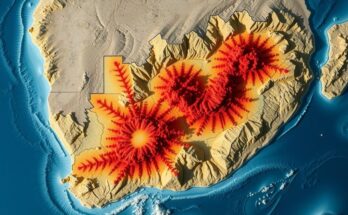The Hawaii Supreme Court ruled that AIG units need not defend Sunoco LP against lawsuits alleging misrepresentation of climate change risks. The court found greenhouse gases to be pollutants under AIG policy exclusions and recognized Aloha’s conduct as triggering potential insurer obligations. The ruling impacts ongoing litigation addressing fossil fuel liability and climate accountability.
On Monday, the Hawaii Supreme Court ruled that units of American International Group Inc. (AIG) are not required to defend a Sunoco LP subsidiary based in Honolulu against two lawsuits asserting that the subsidiary misrepresented the climate change risks associated with fossil fuel consumption. This decision resulted from the court addressing two certified inquiries from a federal judge in Hawaii, where the justices concluded that greenhouse gases qualify as pollutants under exclusionary terms in the AIG policies, owing to their detrimental impact on the Earth’s climate system, which threatens both current and future generations. The case, identified as Aloha Petroleum Ltd. v. National Union Fire Insurance Co. of Pittsburgh, Pa. et al., also recognized that Aloha’s allegedly reckless conduct in its marketing and promotion of fossil fuels constituted an actionable event that activated the insurers’ duty to defend. Aloha Petroleum took action against National Union Fire Insurance and American Home Assurance Co., seeking their assistance in defending against lawsuits filed by the counties of Honolulu and Maui. These municipalities maintain that oil companies were aware of the adverse effects of fossil fuel combustion on climate change as early as the 1960s and have subsequently incurred property damage and increased expenses related to extreme weather preparedness. In their defense, the AIG units argued that they were exempt from providing representation due to Aloha’s intentional actions in marketing fossil fuels, and cited pollution exclusions that they claimed negated any obligation to cover such liabilities.
The ruling of the Hawaii Supreme Court occurs within a broader legal framework where insurance companies are frequently scrutinized regarding their obligations to cover climate-related lawsuits. This case reflects the growing intersection between environmental issues and corporate liability, emphasizing significant concerns regarding the accountability of fossil fuel producers for their contributions to climate change. Previous rulings in similar contexts have addressed whether insurance policies provide coverage for environmental damages and the definitions of pollutants, thus making this decision pertinent not only to the involved parties but also to future litigation involving climate change liabilities.
In summary, the Hawaii Supreme Court has determined that AIG units are not obliged to defend a Sunoco LP subsidiary in lawsuits concerning claims of misrepresentation about climate change risks. This ruling is based on the interpretation that greenhouse gases are pollutants, thereby invoking policy exclusions. The implications of this decision may shape future insurance defenses relating to climate change and corporate accountability.
Original Source: www.businessinsurance.com




